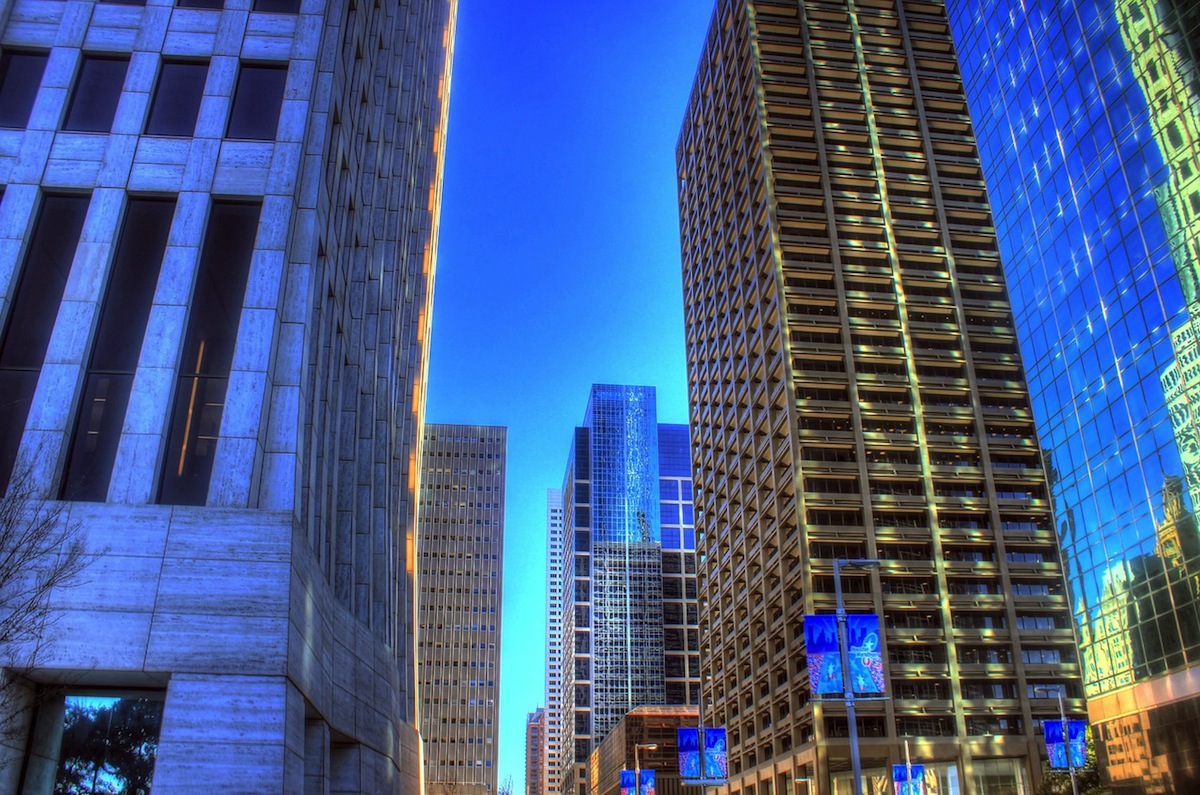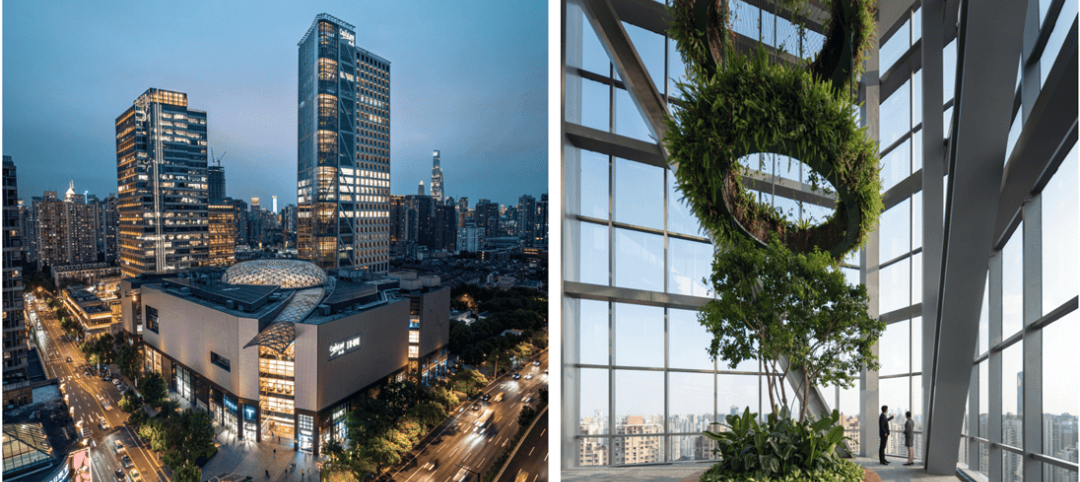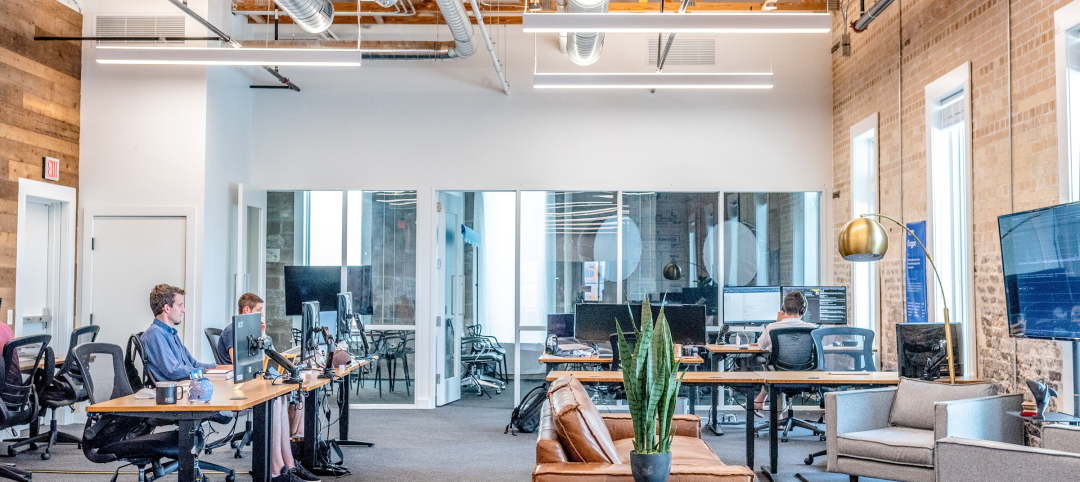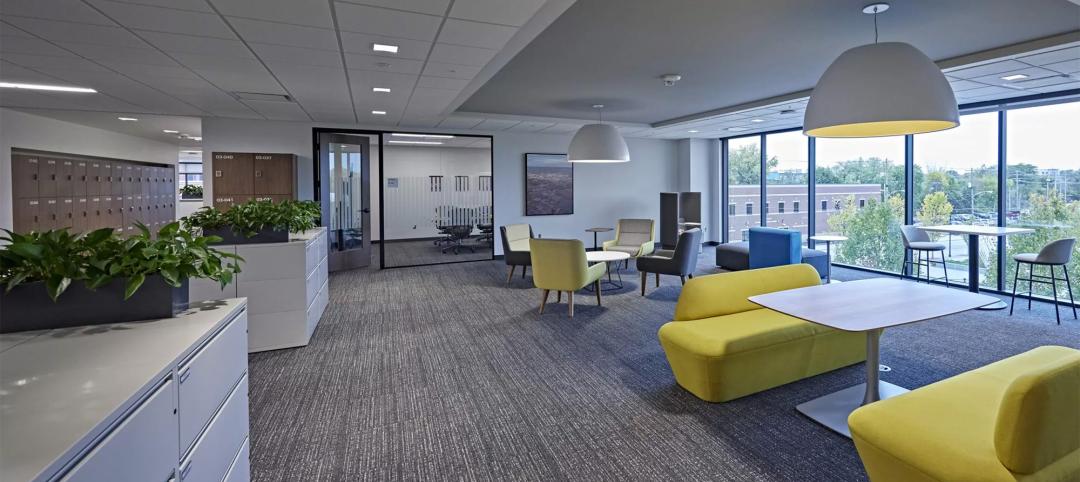Houston continues to be a paradise for AEC firms. The Texas metroplex has more than 14.4 million sf of office construction in the works, making it the No. 1 market in North America for office building, according to Colliers International’s 2015 North America Office Market report.
This report assesses 92 markets in the U.S. and Canada, and analyzes factors and trends that might impact the office construction market’s health. Despite a slow first quarter, Colliers is forecasting growth for this year.
The top 10 markets in North America, in descending order, are Houston, Seattle/Puget Sound, San Jose, Washington D.C., Dallas, Toronto, Calgary, San Francisco, Boston, and Phoenix. Combined, they accounted for 58% of the 113.8 million sf of office space underway in the U.S. and Canada in the first quarter of this year. That percentage is more than double these markets’ 27% share of existing office inventory.
As of the first quarter, office construction in the United States stood at 95.2 million sf, or 1% off from the same period a year earlier. However, deliveries in the first quarter, at 16 million sf, were the highest they’d been since the third quarter of 2009. Colliers says demand for new space “remains voracious” high-tech oriented markets. On the other hand, the greatest oversupply risk is in energy driven markets.
Colliers still sees the U.S. office market as positioned for expansion this year. “Growth in nearly every subsector of the primary office-using employment sectors in Q1 2015 despite numerous headwinds bodes well for office demand going forward,” it predicts. And outside of a handful of markets, oversupply is not a concern.
Among the 10 largest office construction markets:
• Seattle has 8.29 million sf under construction, the vast majority of which is being built in its downtown area, where existing inventory exceeds 56 million sf.
• In San Jose, all of its 8.1 million sf of new office construction is occurring in the suburbs, which already have 68.4 million sf of existing office space available, but where San Jose’s vacancy rate is only 8%.
• Washington D.C. has an 11.7% urban vacancy rate and a 17.5% suburban vacancy rate. Nevertheless, Washington has nearly 4.4.million sf of office space under construction in its suburbs, and another 2.4 million sf being built in its downtown.
• Only 450,000 sf of the 5.8 million sf of offices under construction in Dallas will be downtown. The same dynamic is occurring in Houston, where only 1.4 million sf of its total office construction is downtown.
Related Stories
High-rise Construction | Jul 29, 2024
Safdie Architects’ Shanghai office tower features glass-enclosed corner garden that ascends the 35-story structure
Safdie Architects has announced the completion of LuOne Mixed-Use Complex—a business, retail, and entertainment development in the Luwan district of Shanghai, China. The mixed-use complex consists of an eight-level retail galleria, which opened in 2018, and a 35-story office tower, which recently reached completion.
Smart Buildings | Jul 25, 2024
A Swiss startup devises an intelligent photovoltaic façade that tracks and moves with the sun
Zurich Soft Robotics says Solskin can reduce building energy consumption by up to 80% while producing up to 40% more electricity than comparable façade systems.
Great Solutions | Jul 23, 2024
41 Great Solutions for architects, engineers, and contractors
AI ChatBots, ambient computing, floating MRIs, low-carbon cement, sunshine on demand, next-generation top-down construction. These and 35 other innovations make up our 2024 Great Solutions Report, which highlights fresh ideas and innovations from leading architecture, engineering, and construction firms.
Office Buildings | Jul 22, 2024
U.S. commercial foreclosures increased 48% in June from last year
The commercial building sector continues to be under financial pressure as foreclosures nationwide increased 48% in June compared to June 2023, according to ATTOM, a real estate data analysis firm.
Sponsored | Office Buildings | Jul 17, 2024
Unlocking Sustainability: Smart Access in the Coworking Space
Smart building technologies, including modern access control systems, are transforming coworking spaces by advancing sustainability initiatives and offering new ways to create and operate efficient working spaces. Learn more about the benefits of eco-friendly practices, from reducing carbon emissions to cutting operating costs, and discover how choosing the right partners can amplify your green efforts.
Adaptive Reuse | Jul 12, 2024
Detroit’s Michigan Central Station, centerpiece of innovation hub, opens
The recently opened Michigan Central Station in Detroit is the centerpiece of a 30-acre technology and cultural hub that will include development of urban transportation solutions. The six-year adaptive reuse project of the 640,000 sf historic station, created by the same architect as New York’s Grand Central Station, is the latest sign of a reinvigorating Detroit.
Government Buildings | Jul 8, 2024
GSA adopts new accessibility guidelines for federal properties
The U.S. General Services Administration (GSA) adopted a new rule with new accessibility guidelines for federal buildings. The rule establishes that pedestrian facilities in the public right-of-way are readily accessible to and usable by people with disabilities.
Office Buildings | Jul 8, 2024
Office vacancy peak of 22% to 28% forecasted for 2026
The work from home trend will continue to put pressure on the office real estate market, with peak vacancy of between 22% and 28% in 2026, according to a forecast by Moody’s.
Office Buildings | Jul 1, 2024
Mastering office layouts: 5 primary models for maximum efficiency and productivity
When laying out an office, there are many factors to consider. It’s important to maximize the space, but it’s equally important to make sure the design allows employees to work efficiently.
Smart Buildings | Jul 1, 2024
GSA to invest $80 million on smart building technologies at federal properties
The U.S. General Services Administration (GSA) will invest $80 million from the Inflation Reduction Act (IRA) into smart building technologies within 560 federal buildings. GSA intends to enhance operations through granular controls, expand available reporting with more advanced metering sources, and optimize the operator experience.

















